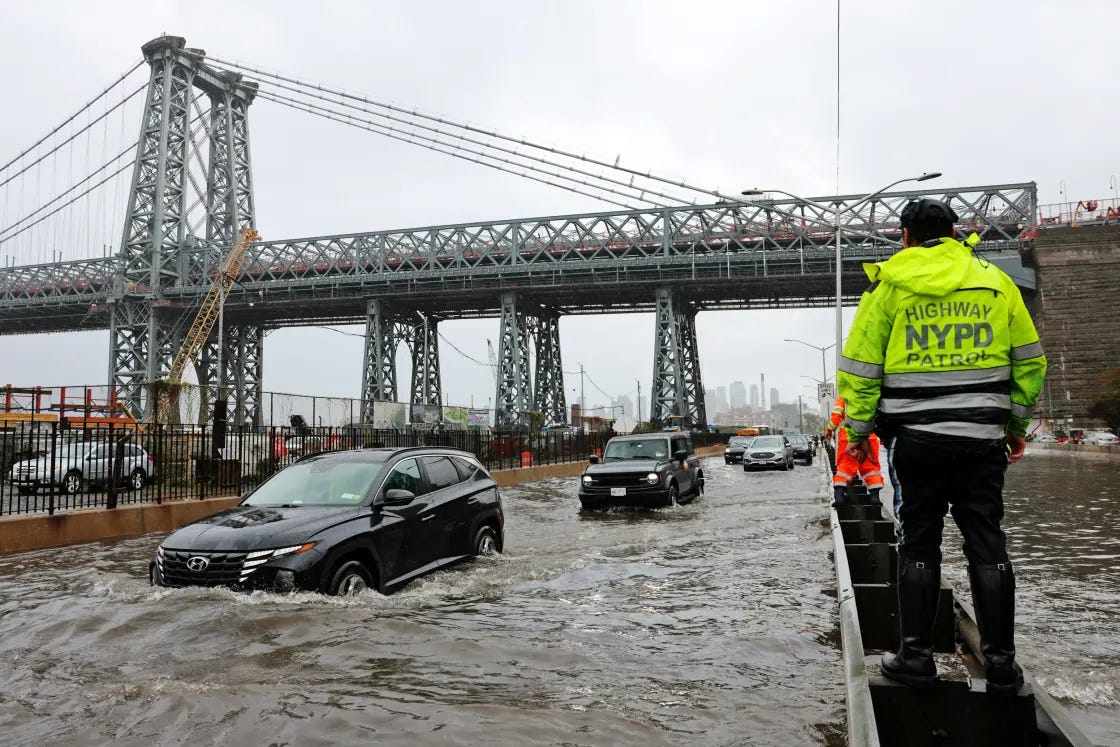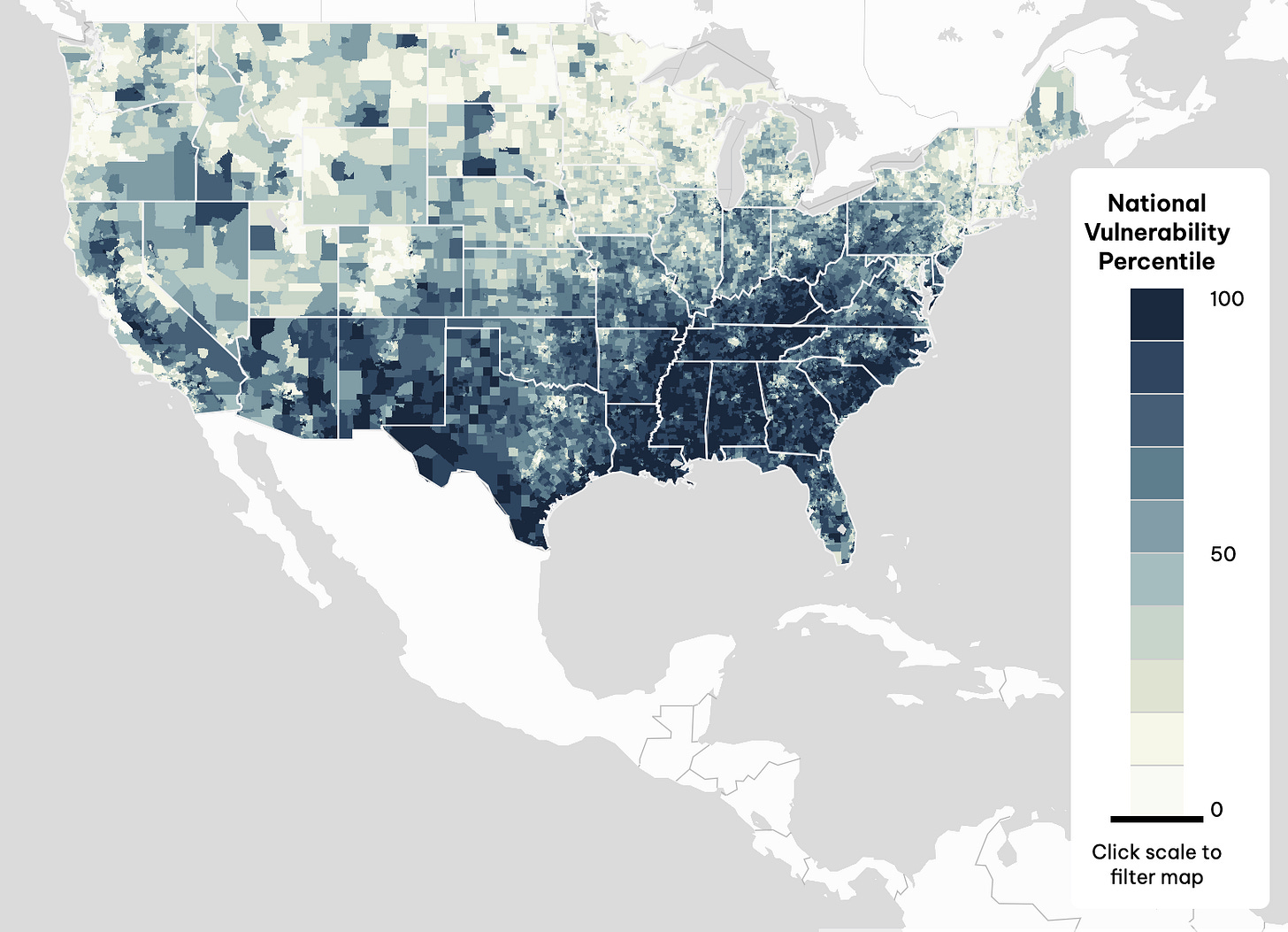New York City Floods Directly Linked to Climate Change
Short on time? Get a quick rundown of today’s top stories from the ACR:
New York City's recent flooding, caused by heavy rainfall, highlights the urgent need for climate change mitigation and better preparation of infrastructure for extreme weather events.
A winter heat wave in Bolivia has caused severe drought conditions in multiple cities, leading to suspended water supply for mining activities and impacting agriculture and livestock.
Colombia, Jamaica, and Panama have launched a USD 42-million project to address plastic pollution in urban and coastal areas.
New York City Floods Directly Linked to Climate Change
Reuters, The Guardian, & Vox
New York City's recent flooding due to heavy rainfall last week highlights the urgent need for climate change mitigation. The heavy rains caused significant disruptions to the subway and commuter rail services. According to a recent study, the storm that caused severe flooding is now 10 to 20% wetter due to climate change. This increase in rainfall is due to a hotter atmosphere that can contain more moisture, leading to heavy rain. Experts believe the city's infrastructure needs to be better prepared for extreme weather events, and that mitigation projects should be expedited, such as retrofitting and implementing nature-based solutions. On Saturday, New York Governor Kathy Hochul declared a state of emergency, and noted that the recent heavy rainfall and flash flooding in New York City is a result of climate change and may be the "new normal.”
Severe Drought in Bolivia Due to Unprecedented Heat Wave
Reuters, San Diego Union-Tribune, & Voz de America
A winter heat wave of unprecedented proportions in Bolivia has resulted in severe drought conditions in several cities. As a result, water supply for mining activities has been suspended, with agriculture and livestock also impacted. The drought has affected over 80% of Bolivian municipalities, especially those in the Andean region, with Potosí being the hardest-hit area. Authorities are worried about the potential exacerbation of the water crisis due to the El Niño climate phenomenon, and they are urging the efficient use of water resources.
Colombia, Jamaica, and Panama Launch Project to Combat Plastic Pollution
United Nations Environment Programme
Colombia, Jamaica, and Panama have launched a joint USD 42-million project to combat plastic pollution in urban and coastal environments. The initiative aims to improve circularity at the city level and reduce the harmful effects of plastic waste on human health and the environment. The project will focus on adopting closed-loop policies, engaging the private sector, and creating awareness among Latin American and Caribbean cities on best practices for marine plastics and plastic pollution.
Developed by the Environmental Defense Fund and Texas A&M University, a new interactive map of the United States demonstrates the country's vulnerability to climate change risks, including fire, flooding, and pollution. The U.S. Climate Vulnerability Index provides detailed information on environmental risks and factors that contribute to vulnerability at the county and neighborhood levels. It incorporates 184 sets of data to rank over 70,000 U.S. Census tracts, aiming to assist communities in securing funding from climate and clean energy programs.
The data reveals that the most vulnerable counties, particularly in the South, exhibit high rates of poverty and health problems. Furthermore, even cities with low climate risk exhibit significant disparities in vulnerability, as seen in Seattle. This comprehensive assessment is considered the most detailed map of its kind to date.
Courses
The Health Effects of Climate Change
Provider: Harvard University / EDX
Type: 7-week online program
Price: Paid
Events
The SDG second half: Ideas for doing things differently
Organizer: Aga Khan Foundation Canada & Brookings Center for Sustainable Development
Theme(s): Sustainable Development Goals (SDGs)
Date: October 5, 2023
Location: In-person & online
Symposium on Conservation Impact
Organizer: Colorado State University Salazar Center for North American Conservation
Theme(s): Conservation in North America
Date: October 11-12, 2023
Location: Denver, CO
Media
How to fight climate change with parking lots
Provider: Vox Media
Type: Video








